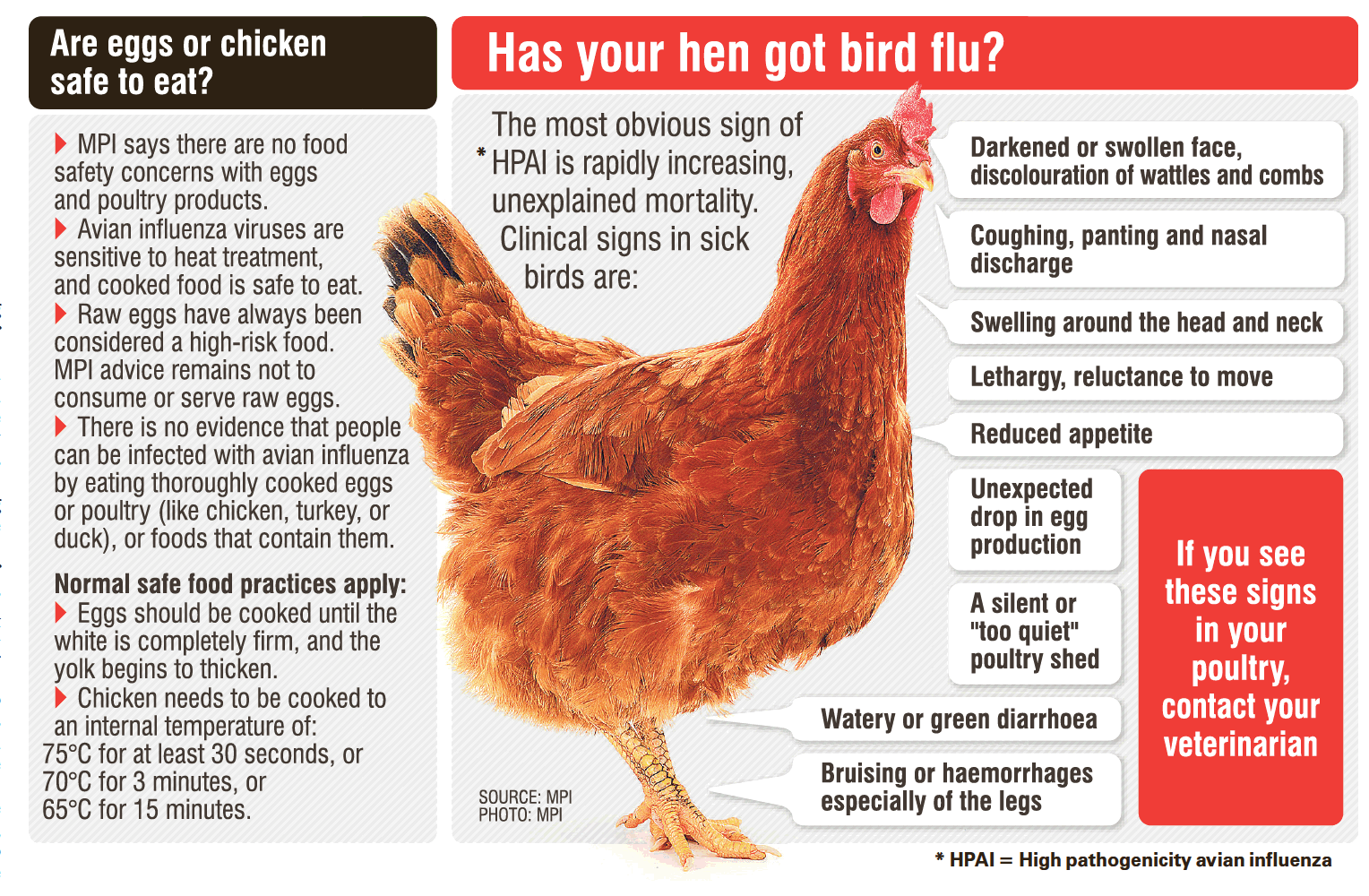
SPCA animal services general manager Dr Corey Regnerus-Kell recommended poultry owners sign up for updates and advice on avian influenza from the Ministry for Primary Industries’ website and social media pages.
However, he said the H7N6 strain of avian influenza was understood to pose a low risk to public health and was not related to the more concerning H5N1 strain, which was having a devastating impact on wildlife and poultry around the rest of the world.
Limiting contact with wild birds, maintaining cleanliness, and monitoring bird health were important biosecurity measures to protect poultry from avian influenza.
"Backyard chicken owners in Otago should be cautious but not overly alarmed."
Clinical signs of avian influenza in birds include sudden death, respiratory distress — such as coughing, or nasal discharge — swelling of the head, neck, and eyes, changes in the colour of combs and legs, a drop in egg production, and nervous symptoms such as tremors or lack of co-ordination.
People who came across poultry, pet birds, or any wild birds showing signs consistent with avian flu should avoid contact and report it immediately, he said.
Ministry for Primary Industries chief veterinary officer Dr Mary van Andel said if people were concerned about clinical signs in their birds they should first contact their veterinarian so that other causes of disease in chickens could be ruled out.
A vet would be able to determine whether the case needed to be referred to the Exotic Pest and Disease Hotline.
• The Exotic Pest and Disease Hotline - 0800 80 99 66.
— APL




















